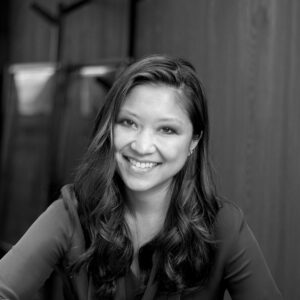Chiefs Talk Choice: Tom Boasberg Is Clear on Purpose — Driving Greater Equity for Historically Underserved Students

This piece is part of a series of exclusive interviews The 74 conducted in partnership with Chiefs for Change to recognize National School Choice Week. Click through to read our conversations with Pedro Martinez, superintendent of San Antonio Independent School District, and Lewis Ferebee, superintendent of Indianapolis Public Schools.
Since Tom Boasberg was appointed to lead Denver Public Schools in 2009, the district has seen a renewed focus on providing opportunities for high-needs students, boasted exponential gains, and expanded its portfolio of high-performing charter schools. DPS has received national recognition for a number of its initiatives, including those of school choice and new schools.
Boasberg arrived in Denver by way of the Federal Communications Commission, for which he was a legal adviser. He was also once a junior high school English teacher in Hong Kong’s public schools.
In Colorado, the education climate is a little different — achievement gaps persist, and political resistance is strong. And even as acceptance and cooperation have grown for greater collaboration across traditional district and charter schools, school reform opposition endures.
The following interview has been lightly edited for clarity.
The 74: What do you consider your biggest accomplishment in offering a high-quality education to families?
Boasberg: I think it’s been the tremendous growth in student achievement. We’ve decreased our dropout rate by 70 percent; we’ve increased our graduates by 70 percent. As a result of the increase in quality of our schools, we’ve had the fastest enrollment growth of any school district of any big city in the country.
Choice has played a very important role in that. From the beginning, we had a very intentional and clear strategy to work very hard to improve our existing schools, to welcome high-quality new schools, and to encourage innovation in our schools. I think that’s been a very important part of driving improvement in academic performance and driving the huge increases in enrollment.
In what areas, and from where, do you face the most backlash?
Our model is a very different model from the traditional model of public education, which has long been a monopoly, and has long been one where there’s often very little choice for parents, and one where you had one school in a boundary, where boundaries have often replicated patterns of housing segregation. Our model, on the other hand, has welcomed high-quality district schools, high-quality charter schools, and integrated multiple district schools and charters in community enrollment zones.
So there’s pressure from the charter side, from the traditional district side, from white folks, from people of color…. None of these issues are easy or cut-and-dry. There’s lots of disagreement — and there should be — about the best approaches to these issues.
Are your greatest challenges political or logistical?
I don’t think they’re logistical. Our system has been seen as very strong. Our unified enrollment system is a national model and has a high degree of respect and acceptance. I think our challenges are both policy — how do we devise and implement the best policies — and political — how do we make sure we’re responsive to community concerns and leading on critical issues.
Where is there room for improvement?
Lots. The overarching improvement is we want every school to be an excellent school. I’m grateful for the improvement that we made, but we’ve got lots to do on the quality of all of our schools and in successfully eliminating achievement and opportunity gaps.
What role does a district superintendent have in promoting a portfolio of high-quality options?
It’s a central leadership role in trying to articulate a clear vision in where we want to get to, to be able to help create effective and thoughtful policies, and to work closely with the community to have a strong level of understanding and support in a two-way manner so that changes can be both made and, most importantly, sustained in our democracy.
How has your own thinking evolved on school choice over the years?
I’ve always believed in equity among all of our schools, regardless of governance. And the whole purpose of school choice is to drive greater equity for our highest-needs kids and for communities that have not historically been well-served. And I continue to believe very strongly in both those core principles. The purpose of this is to drive equity, and to do so, you need to have strong, equitable systems of governance: choice, district, and charter schools.
One thing that keeps getting hammered home time and again is the power of privilege in our society, and how strong a pull that has on families in the community. And our historical systems — for example, where we rate schools solely based on the academic status of students — really exacerbate those biases and prejudices that are so inherent. There’s a powerful lesson here around how important it is that you be aware of the powerful force of privilege and set up your systems to be able to deal with the power of those forces.
What are some lessons learned from your experience that can be extrapolated and replicated in other states and districts?
One is to be clear on what your overarching purpose is. I think that overarching purpose in Denver and elsewhere is, or should be, around driving greater equity for historically underserved students. If your systems aren’t doing that, then what are they doing? And by definition what they’ll be doing is exacerbating the inequities in our society.
Linked to that is, if you’re going to have public schools of multiple governing types — district-run and charter — make sure you’re committed to having truly public schools, and that all of your schools, regardless of governing type, have the same opportunities, resources, building facilities, and have the same responsibilities to serve all students.
Get stories like these delivered straight to your inbox. Sign up for The 74 Newsletter

;)
